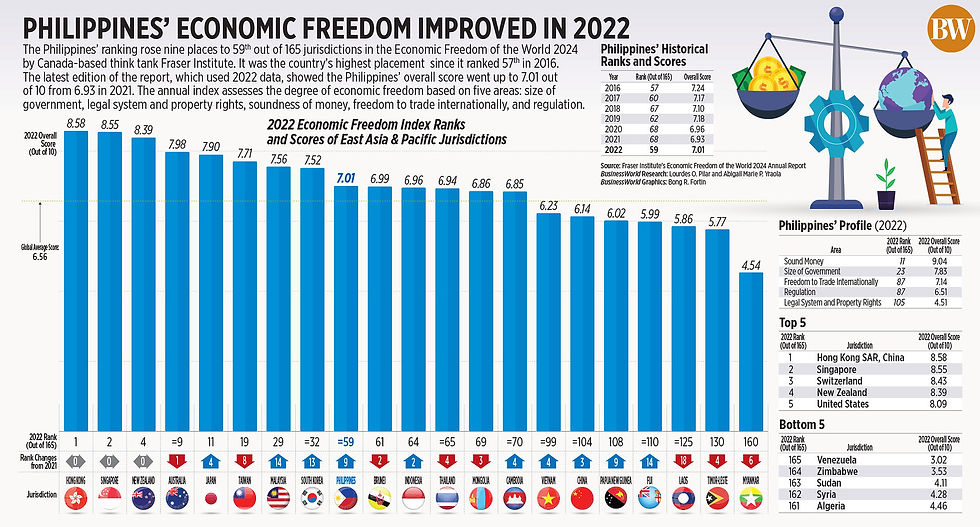- Ziggurat Realestatecorp
- Nov 30, 2024
- 4 min read
The struggles faced by micro, small and medium enterprises (MSMEs) to bid and participate in government procurement opportunities are quite different from large enterprises, and the struggle is even more apparent for women micro, small and medium enterprises (WMSMEs).
Recent studies show the potential of MSMEs to transform our economy and promote social equity, especially when women entrepreneurs are able to participate.
This was the topic of a recent talk during the 2024 Procurement Summit on Oct. 21, organized by the Government Procurement Policy Board -Technical Support Office, with the theme “Leveraging Local MSMEs for Inclusive and Sustainable Procurement”.
Current state of WMSMEs
The impact of women entrepreneurs in the economy cannot be denied as they drive economic growth and contribute to achieving different sustainable development goals. Based on the 2018 data of Statista, a global data and business intelligence platform, on the leading industries in the MSME sector, around 88 percent of entrepreneurs in the Philippines engaged in retail or wholesale were women; and at least 40 percent were engaged in arts and culture, materials or manufacturing, food processing and agriculture. The government has the capacity to leverage its significant market reach to influence and shape how businesses create and process products and services to the public. It can, in turn, influence public demand and create opportunities for women, including consumer awareness, to achieve sustainable and inclusive procurement practices. This also means that our country can employ equitable and inclusive procurement policies to promote significant socioeconomic change for women and their businesses.
Recommendations for the private and public sectors
By including WMSMEs in government procurement, the government is assured that economic benefits are widely and justly distributed because research shows that women often invest a high proportion of their income to their family and community compared with their male counterparts, which leads to transformative improvement of the family’s well-being and enhancement of community development.
For the private sector
1. Set targets/goals on the percentage of total purchases to be sourced from WMSMEs. By actively seeking out and engaging with women entrepreneurs, companies will diversify their supply chains and will help break some deeply systemic barriers that hinder women from participating in procurement.
2. Establish partnerships with organizations that support women entrepreneurs to identify suppliers and for ease of connections with WMSMEs.
3. Integrate gender-responsive criteria in supplier selection and accreditation. When evaluating potential suppliers, companies can include criteria that assess the supplier’s commitment to gender-responsive policies to promote gender diversity in the workforce and any other initiatives that will promote women empowerment within their business. Integrating this criteria into the supplier selection process not only encourages suppliers to adopt more inclusive practices but also helps provide a competitive advantage to those who prioritize gender responsiveness.
4. Adopt inclusive and gender-responsive procurement policies. Implementing supplier diversity is an effective strategy that explicitly seeks inclusion of women-owned and women-led businesses in the supply chain. Through this approach, we can strategically promote gender equality within the business by supporting potential women suppliers.
For the public sector
1. Strictly implement the provisions of Republic Act No. 9501, or the Magna Carta for MSMEs, which mandates government agencies to allocate 20 percent of all their procurement opportunities for goods and services to MSMEs. Though no specific targets have been set for WMSMEs that comprise about 56 percent of MSMEs, they will nonetheless benefit. Preferably, a specific target is set for WMSMEs.
2. Incorporate gender-responsive criteria in bidding evaluation. As many WMSMEs are often small, they face challenges in competing with large companies for government contracts. To enable WMSMEs to participate, among the criteria that could be incorporated in the evaluation of bids from larger companies should be a commitment to source a percentage of their own purchases from WMSMEs, and the presence of policies that promote gender equality in their organizations. This approach could help level the playing field for smaller businesses and is aligned with the Magna Carta, enabling government spending to contribute to the economic empowerment of women. To further encourage WMSMEs to participate in public procurement, the government can provide support and resources to organize all women consortia, where WMSMEs can pool their resources and share their expertise.
3. Utilize the gender and development (GAD) budget of all government agencies and instrumentalities for procurement from WMSMEs. Based on the approved national budget of P5.768 trillion, even if only 1 percent of the 5-percent GAD budget of approximately P57.68 billion is used for purchases from WMSMEs, can you imagine the impact that this will create to the woman, her family and her community?
4. Link government incentives to gender-responsive procurement practices. Government agencies, such as the Department of Trade and Industry, which is responsible for MSME development, could include in their evaluation criteria for the grant of incentives a commitment to source from WMSMEs or to implement gender diversity initiatives. Government can thus encourage businesses to give priority to gender equality in their operations, amplifying the impact of government mechanisms.
‘When she bids, we benefit’
Taking a collective action to build a more equitable, inclusive society can transform our economy where women have equal opportunities to reach their full potential. The private and public sectors must work together to empower women so we can achieve inclusive procurement practices.
When she bids, we benefit; ensuring participation of WMSMEs in procurement is not just a matter of economic necessity—it is a moral imperative. Gender-responsive procurement will not only benefit WMSMEs but also contribute to a more diverse and resilient economy, leading to greater social and economic prosperity for all.
Source: Inquirer



